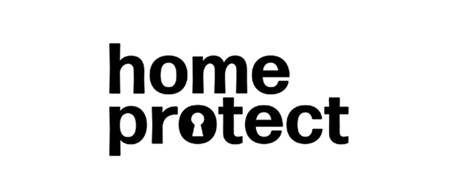
Home Insurance
Compare home insurance quotes: Protect your home & get peace of mind

Peace of mind in minutes
What is home insurance?
Home insurance isn’t a legal requirement, but it offers financial support by protecting your home and belongings from unexpected events like fire, theft, or subsidence. UK mortgage lenders usually require it, and contents insurance is advisable if you are renting.
Home insurance provides financial security and peace of mind through two main types, buildings and contents insurance, which you can also purchase combined – often the most budget-friendly choice. You can find the perfect policy for your needs in minutes with an easy-to-use price comparison tool.

What type of home insurance do I need?
Buildings insurance
Contents insurance
Combined buildings and contents insurance
A single policy that merges buildings and contents coverage.
Chosen by many as this can make management of home insurance easier, and is usually a more affordable option.
See how much you could save – Compare quotes from up to 50 insurance providers
Do I need home insurance?
Owning a property comes with the responsibility of potential repair costs. While policies can vary, yours should meet your needs and budget. Skipping cover can really leave you out of pocket when the unexpected happens. For this reason, UK mortgage lenders usually require buildings insurance as a condition of the mortgage. Even if you don’t need home insurance, for example if you are renting a property, you’ll likely need contents insurance.
It’s important to check your mortgage terms to ensure any policy you purchase meets your lender’s requirements.

How do I get a home insurance quote?
Property specifics:
Resident information:
Security features:
Personal data:
Rebuild estimate:
Household contents value:
Could you save more on your home insurance?
Instant quotes from top UK insurance providers






Save on your home insurance
1.
Calculate your rebuild cost
2.
Know your home’s construction and age
3.
Review your contents regularly
4
Improve home security
5.
Maintain your property
View more (6-10)
6.
Know your location’s risks
7.
Increase your voluntary excess
8.
Pay annually, not monthly
9.
Bundle policies where you can
10.
Shop around and compare quotes
Find a cover that meets your needs and budget
Frequently Asked Questions
What’s the difference between buildings and contents cover, and what does a standard UK policy include?
How is my home’s rebuild cost calculated, and why is an accurate ‘sum insured’ vital?
What affects my premium and how can I reduce my home insurance costs?
Location, size, age, security and claims history. To reduce costs: improve security, increase voluntary excess, maintain a no-claims discount. See our tips.
What are common exclusions and how can I get cover for specific risks like flooding or subsidence?
How do I value my household contents for insurance?
What’s the claims process, and what should I do if I need to make a claim?
We know making a claim follows a stressful or upsetting event, and all insurers will want to make the process as smooth as possible for you. You are advised to contact your insurer as soon as you can. Give them as much detail as possible about what happened, including photos and any supporting documentation you have. It’s also a good idea to keep a record of all conversations and correspondence. Your insurer will then guide you through the next steps and we’ll do our best to support you during this time.
Insurance policies you purchase through this service are covered by the Financial Services Compensation Scheme (FSCS) if the insurer fails. Home insurance is typically covered for 90% of the claim with no upper limit. For more information, visit www.fscs.org.uk.
How does a no-claims discount work?
If I let a room or my property, how does this affect my insurance?
What are the benefits of a combined buildings and contents policy?
How often should I review my home insurance to ensure it’s still suitable?
Find a cover that meets your needs and budget
LifeStage is a trading name of WPS Advisory Limited which is authorised and regulated by the Financial Conduct Authority (FCA). Financial Services Register No. 624546.
Insurance comparison services are provided by Seopa Ltd which is authorised and regulated by the Financial Conduct Authority (FCA). Financial Services Register No. 313860.
1 This comparison service is powered by Seopa Ltd and accessed via WPS Advisory Limited (trading as LifeStage). Both companies are authorised and regulated by the Financial Conduct Authority.
2 51% of consumers could save £209.33 on their Home Building & Contents Insurance. The saving was calculated by comparing the cheapest price found with the average of the next fourteen cheapest prices quoted by insurance providers on Seopa Ltd’s insurance comparison website. This is based on representative cost savings from December 2024. The savings you could achieve are dependent on your individual circumstances.
3 The quotes you receive are generated by Seopa Ltd sharing your information with their panel of insurance providers. Each quote is based on the information you provide and the insurance provider’s own pricing criteria.
4 This information is intended for editorial purposes only and not intended as a recommendation or financial advice.
5 51% of consumers could save £515.24 on their Car Insurance. The saving was calculated by comparing the cheapest price found with the average of the next six cheapest prices quoted by insurance providers on Seopa Ltd’s insurance comparison website. This is based on representative cost savings from December 2024 data. The savings you could achieve are dependent on your individual circumstances and how you selected your current insurance supplier.
